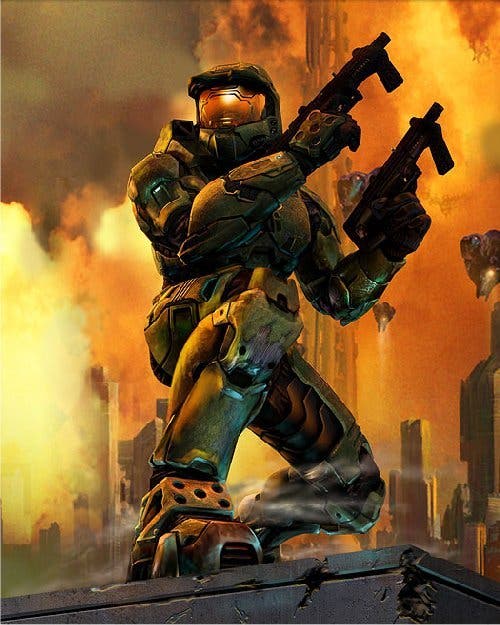Bungie bids Halo farewell
Eric Osborne looks back at 10 years of Master Chief.
It's a big year for Bungie. Not only does it celebrate its 20th birthday but, with the impending release of Halo: Combat Evolved Anniversary, it's also formally signing off custodianship of Master Chief to 343 Industries.
With an hour-long retrospective documenting its two decades in the video game business now live on Bungie.net, community manager Eric Osborne sat down with Eurogamer to discuss leaving the lucrative bosom of one of the most successful game franchises of all time in favour of new, uncharted territory.
We transitioned support away from our online matchmaking as of yesterday. We still have stats and a file-sharing community on our website. Obviously we're pretty proud of the Halo legacy and will never really let go of that, but the documentary itself encompasses the entire span of Bungie's past and present. We go through the company's inception, time spent in Chicago, the Microsoft acquisition, the Halo trilogy, the independence and a little bit beyond. So it's actually bigger in scope than just Halo, though obviously that does play a major role.
Just talking to a lot of the guys who were around before Halo shipped - they were working on Myth and they had some other projects in the works. They were basically looking to build kind of a third person top-down RTS action game in the vein of Myth. In fact they were working in the same engine. Then, through a series of natural events while working on the game, they came to what is known as Halo.
None of those guys ever thought it would get as big and as grandiose as it did, but of course as game-makers and storytellers they want to have as big an audience as possible, so that's always a goal that they had in their heads. At certain points throughout the project they'll say, while they never expected it to get this big, they kind of knew they had something really great. There's these moments that call out -going into first person, getting in the warthog and driving around - where it just started to cement.
But I think that's something very different. Knowing you have something fun, knowing you have a game you're going to be really proud of and excited about playing, and that will resonate with a lot of players is very different from saying 'we're going to design this thing to sell millions of dollars in software'. That might be the wrong approach to making video games.
I don't know if anybody really believed it was going to sell millions of copies in the way that it did. They definitely knew they had something fun. We have a bunch of old footage of these guys playing the game and working on it and once they have a product that gelled and they're in there playing multiplayer and you can see them having a ton of fun.
It would really depend on who you talk to. There are so many different opinions and roles that people have taken on different projects. Sometimes someone might play the role of art director on one project and then be creative director on the next. It just depends on their role, and their opinion, and the lens they look at their work through. They have a tonne of different moments that they can look back on and say 'that's the one'.

For some guys it was shipping Myth, for some guys it's getting hired, for other guys it's ODST and the story they wove into that. For Marcus [Lehto, creative art director] it's finishing his work in the Halo universe with Halo Reach and going out with a bang. There are just so many, and that's part of the reason the 20th anniversary doc exists - to look at those turning points and look at the different opinions from different people at the studio.
I came to the studio as a fan, so I really remember the things... getting hyped up for the trailers, waiting in launch lines, meeting people in lines - those are the moments that always stick out for me, the community moments. I remember meeting a guy in St Louis who had driven four and a half hours just to buy the game. When I started talking to him I found he didn't even have an internet connection. To me that was mind-blowing because the big feature for me was that I'm going to get to play this thing over Xbox Live with a tonne of people and it's going to be amazing. I'm going to be able to shoot people in the face while talking to them over an internet connection!
Whenever I talk to people about the impact of Bungie and what they remember most, it's always the people they've met, the times they've shared, the relationships and friendships they've formed. For me, thats a pretty powerful thing for a game to do – to foster a clean, well-lit place for people to bond.








